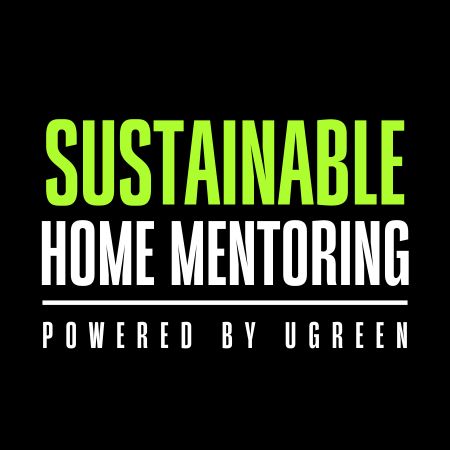Hi, Future Green Hero! Filipe Boni and Sami Meira here.
We are here to alert you to the greatest opportunity in history to transform your home sustainably in 2024.
So, if you are looking to transform your home with a strong purpose and more economical solutions, read this letter to the end.
Registrations are open for the Sustainable Home Mentorship. Your membership gives you access to:
Live Sustainable Building Meetings
In 4 live online meetings on Google Meet - once a month, each lasting 3-4 hours - you will receive all the content you need to transform your home sustainably.
These four meetings will cover:
1st Meeting: Introduction to Home Sustainability
The world is changing, and the importance of home sustainability is becoming increasingly evident. In a world where resources are limited and environmental degradation is a growing concern, it is essential that we adopt new and innovative ways of thinking about how we manage our homes. This is why a mentorship on home sustainability is so important.
This lesson will equip you with the knowledge and skills necessary to make informed decisions about the sustainable management of your home. You will learn basic concepts, the importance of sustainability, and the positive impacts on the environment and your personal finances.
In this lesson, you will discover the benefits of using sustainable practices in your home. You will not only have a positive impact on the environment, but you will also be able to save money in the long run. You will learn how to communicate the benefits of these practices to your family and friends, showing the value these choices bring to your home.
In this meeting, you will learn about:
Introduction to Home Sustainability: Fundamentals and benefits of sustainability at home, including basic concepts, the importance of sustainability, and positive impacts on the environment and personal finances.
Biophilic Design: Integration of natural elements into home design to promote well-being, such as indoor plants, natural materials, natural lighting, and views of nature.
Natural Ventilation and Air Quality: Techniques to improve natural ventilation and indoor air quality, including cross ventilation, air-purifying plants, and humidity control.
Water Conservation: Practices and devices to reduce water consumption, such as rainwater harvesting systems, low-flow devices, and greywater reuse.
2nd Meeting: Energy Efficiency and Comfort
Lighting design has a profound impact on how we experience the world around us. It can enhance the aesthetic appeal of a space, create a sense of comfort and security, and even impact our physical and mental well-being.
In a world where energy efficiency and environmental sustainability are becoming increasingly important, it is essential that we adopt new and innovative ways of thinking about lighting in our homes. This is why sustainable lighting design is so important.
This lesson will equip you with the knowledge and skills necessary to create lighting designs that are both aesthetically pleasing and environmentally responsible. You will learn how to use free software to create lighting simulations that demonstrate the benefits of sustainable lighting.
You will also learn how to evaluate and choose the best lighting options for your needs, considering factors such as cost, efficiency, and environmental impact.
In this meeting, you will learn about:
Energy Efficiency at Home: Techniques and technologies to reduce energy consumption, including automation systems, efficient appliances, and thermal insulation strategies.
Home Automation for Sustainability: Use of technology to monitor and control resource consumption, such as automation systems, monitoring apps, and smart devices.
Circular Economy and Financial Sustainability: How sustainable practices can save money and promote a circular economy, including waste reduction, material reuse, and sustainable investments.
Natural and Healthy Cleaning Products: Making and using homemade and eco-friendly cleaning products, with recipes for cleaning products, benefits of natural products, and reduction of harmful chemicals.
3rd Meeting: Biophilic Design
Biophilic design is a revolutionary approach to design that seeks to connect people with nature in a meaningful and sustainable way. In an increasingly urbanized world that is disconnected from the natural world, biophilic design offers a new way of thinking about the built environment. Therefore, the importance of biophilic design is indisputable.
This lesson will equip you with the knowledge and skills necessary to create designs that are not only aesthetically pleasing but also promote well-being and health. You will learn about the key features of biophilic design, such as natural light, natural materials, and vegetation, and how to incorporate them into your home.
In this lesson, you will discover the benefits of using biophilic design in your home. By creating spaces that promote well-being and health, you will be able to improve the quality of life for the people who use these spaces.
You will also learn how to compile project data into compact reports for your family, demonstrating the positive impact that biophilic design can have on their lives.
In this meeting, you will learn about:
Recycling and Waste Management: How to implement an effective recycling and composting system at home, including waste separation, home composting, and reduction of organic waste.
Use of Sustainable Materials: Choosing and using eco-friendly materials in construction and decoration, such as recycled materials, plastic alternatives, and sustainable construction products.
Urban Gardening and Agriculture: Growing food in small urban spaces, with vertical gardens, window gardens, and permaculture techniques.
Case Study: Reducing the Impact of Building Materials: Practical examples and success stories of projects that used sustainable materials, including lessons learned and results achieved.
4th Meeting: Waste Management and Sustainable Materials
Sustainable planning plays a crucial role in how we live in the built environment. It affects our ability to create comfortable, efficient, and environmentally responsible spaces. In a world where sustainability and environmental responsibility are becoming increasingly important, it is essential that we adopt new ways of thinking about building and renovating our homes.
This section will equip you with the knowledge and skills necessary to transform your external and internal spaces sustainably. You will learn how to apply sustainable gardening techniques, use native plants, and create habitats for pollinators.
You will also learn strategies to incorporate sustainability into interior design, such as choosing eco-friendly furniture, sustainable finishing materials, and efficient lighting.
In this meeting, you will learn about:
Sustainable Transformation of Outdoor Spaces: How to transform gardens and outdoor areas into sustainable spaces, including sustainable gardening techniques, use of native plants, and creation of pollinator habitats.
Sustainable Interior Design: Strategies to incorporate sustainability into interior design, such as choosing eco-friendly furniture, sustainable finishing materials, and efficient lighting.
Case Study: Sustainable Homes Around the World: Inspiring examples of sustainable homes globally, with analysis of different approaches and technologies used in sustainable homes in various parts of the world.
Sustainable Renovation Planning: How to plan and execute a home renovation with a focus on sustainability, including material selection, eco-friendly construction techniques, and sustainable project management.
After each live lesson, you will receive our guidance to clarify doubts and tackle current challenges related to sustainable transformation of your home.
After these meetings, you will develop the ability to look at your home and understand exactly what steps to take to make it more sustainable.
It doesn't matter if you are just starting or already have experience in home sustainability.
You will receive a pathway to be successful in this journey.
Need installment plan? Send us an email at contato@ugreen.com.br

